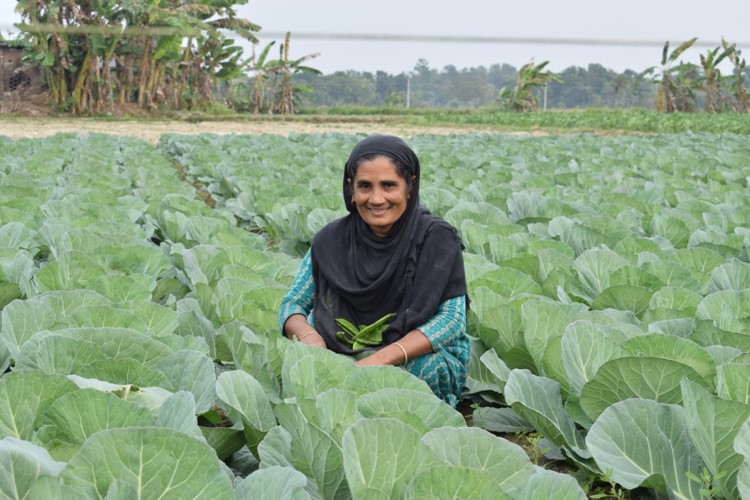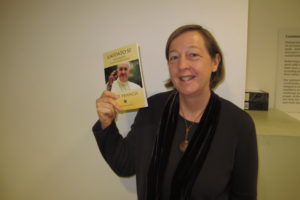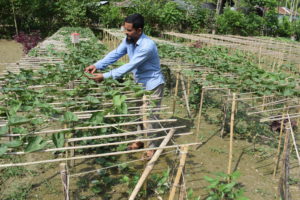How is Laudato Si’ changing the way we work at CAFOD?

Pope Francis’ encyclical Laudato Si’ has inspired and challenged CAFOD in the way we work. Susy Brouard, from CAFOD’s theology team, and Gisele Henriques, from our international programmes team, reflect on how.
In June 2015 Pope Francis issued the encyclical Laudato Si’. The sub-title was “on care for our common home”. The letter was addressed not just to Catholics, and not just to people of faith. It was addressed to every citizen on the planet.
Pope Francis recognises that we have a common problem – environmental and social degradation. This problem will require a common solution so everyone is invited to be involved! As the Pope stated: “I urgently appeal, then, for a new dialogue about how we are shaping the future of our planet.” (# 14)
Reflect on and respond to Laudato Si’ with our prayer resources
CAFOD’s reflection on Laudato Si’

As a Catholic development agency CAFOD took the Pope’s invitation to dialogue very seriously. We felt we were in a good position to contribute constructively to the conversation. At the same time, we also saw that Laudato Si’ contained within it many challenges about the way we live and work. This included our approach to international development. We realised that we might be required to change some of the ways we think and work.
We decided to start the dialogue around progress and development. So we started by facilitating workshops with our partners in Sierra Leone, Ethiopia, Bangladesh and Colombia. For all involved this was a rich and insightful experience.
Fr Emanuel from the Bangladesh workshop said: “This workshop has enlightened me and opened me up to look at creation, its importance and value. It has helped me to listen intensely and with more care and love to the cry of the earth and the cry of the poor.”
Reducing the carbon footprint
After conversations with partners, we wanted to encourage staff to think about how Laudato Si’ could shape their work. So, for the last two years, CAFOD staff have been given opportunities to engage with some of the key messages of the Pope’s encyclical. We reflect on how we are responding to the cry of the earth and the cry of the poor. This means not only reviewing our work overseas. We also focus on how we operate in England and Wales in terms of living and working simply and sustainably.
For example, part of caring for our common home is reducing our carbon footprint so that we can reverse the trends and impacts of global warming. The changing climate affects poorest communities first and worst – it is therefore part of our mission.
Switch your energy and reduce your carbon footprint
International flights form the biggest part of our carbon footprint – about 40%. So we are starting to monitor and look at ways we can reduce them. We know we fly too much as an organisation. But we also know that some flights are key for our relationships and our work. We are looking into reducing our footprint through fewer trips, better video conferencing facilities, and taking other forms of transportation.
An integrated approach to programming
In terms of work on the ground we have started to encourage partners to take an integrated approach to programming. An approach that goes beyond addressing the symptoms of poverty and injustice and rather builds a community’s long-term resilience. This means ensuring they have the ability to bounce back from shocks and stresses and to use change to adapt, regenerate and flourish. This has involved increasing our environmental stewardship, leaving no-one behind and supporting communities to effectively influence the policy processes that affect them.
Donate to support our work across the world

For instance, in Bangladesh, where people are severely affected by climate change, we are supporting farming communities. We help them to improve food production sustainably and access local markets to support their economic development. We are also working with the poorest and most vulnerable to help them adapt to climate change. Farmers are taking care of the earth which in turn is taking care of them by supporting their livelihoods.
For us Laudato Si’ is not a static document, but words which continually inspire and motivate us, and above all challenge us to continually take care for our common home and effectively answer the ‘cry of the earth and the cry of the poor’.
Reflect on and respond to Laudato Si’ with our prayer resources